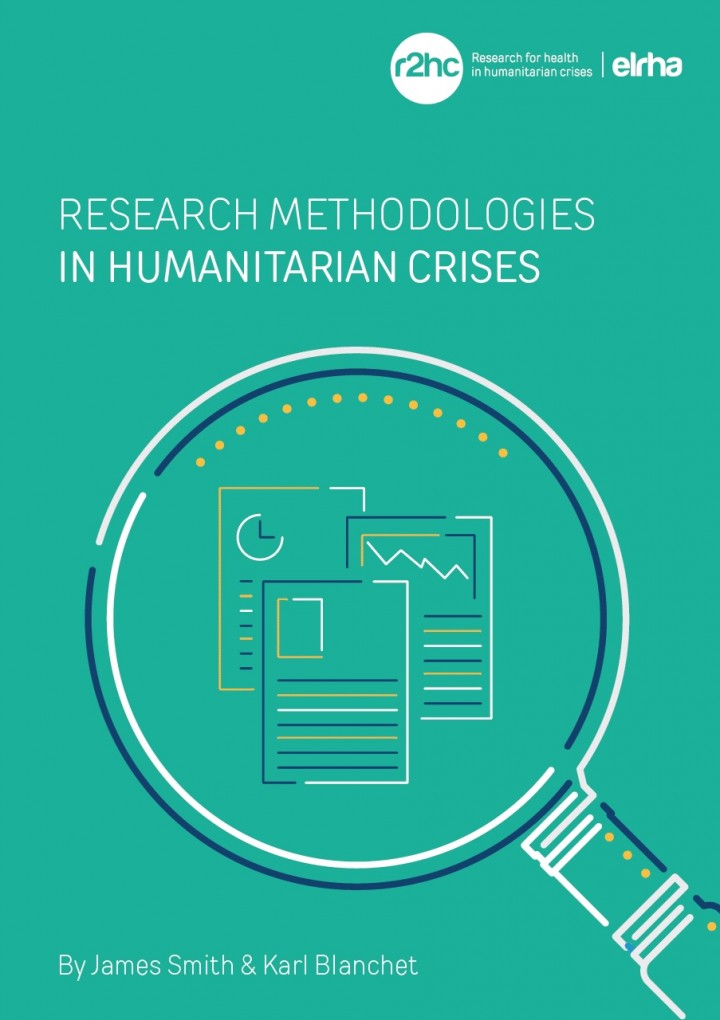
Published in: 2020
Pages: 47
Publisher:
Elrha
Author:
Smith, J., Blanchet, K.
Uploaded by:
SuSanA Admin
Partner profile:
common upload
1006 Views
18 Downloads
Humanitarian needs are extensive and widespread. In order to best respond to the needs of people affected by humanitarian crises, research in humanitarian settings is increasingly recognised as a valuable endeavour which allows for contextually relevant knowledge generation.
Despite widespread appreciation of the value of research conducted in humanitarian settings, the inherent dynamism and unpredictability of certain humanitarian crisis contexts, combined with a myriad of implementation challenges, have made it difficult to bridge knowledge gaps across the humanitarian sector.
The launch of the Research for Health in Humanitarian Crises (R2HC) programme in 2013 represented a concerted effort to fund health research in humanitarian contexts, with 62 studies funded since 2014 through a series of annual calls for research proposals between 2013 and 2019.
Since then, the operational research capacities of a number of implementing organisations have been bolstered, and dedicated research teams have prioritised research on health and other issues in humanitarian settings.
Despite a sectoral recognition of the value of research, contextual challenges have prompted donors and researchers across the sector to explore the question of methodological adaptation and innovation to accelerate the conduct of research in humanitarian settings. In a similar vein, Elrha commissioned this study to identify and analyse information related to research methods used in humanitarian settings, with a specific focus on the utilisation of adaptive or innovative approaches.
To address this question, this study combined a review of R2HC-funded studies, a peer-reviewed literature review, and key informant interviews with 39 expert researchers and implementers.
From this study it is clear that adaptation of methods is commonplace, and is incorporated to ensure research can be implemented despite contextual constraints. While adaptation is frequently described in the literature and by sectoral experts, new and innovative methods are rarely applied. Researchers continue to implement tried and tested methodological approaches, along with adaptation to sampling, randomisation, follow-up, and other core processes in pursuit of methodological rigour, ethical good practice, and reliable research outputs.
A greater focus on the adapted application of established methods, and thus an elevation of the value of implementation research, holds promise, as does the application of mixed methods research. To better understand and facilitate adaptation and the potential for innovation, space must be created to document and discuss operational challenges and changes made during the research lifecycle. Research teams should systematically incorporate justification for study methodology and document adaptive practices, while donors should consider the incorporation of core elements of the research process – including broader research capacity strengthening activities – within available funding streams.
Bibliographic information
Smith, J., Blanchet, K. (2020). Research Methodologies in Humanitarian Crises. Elrha
Filter tags
English














